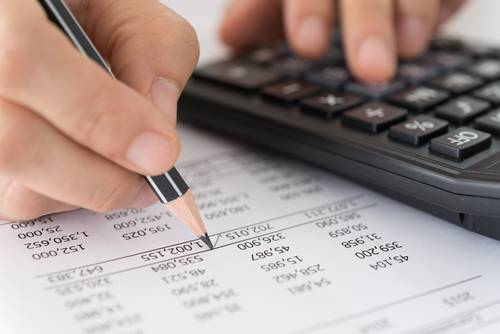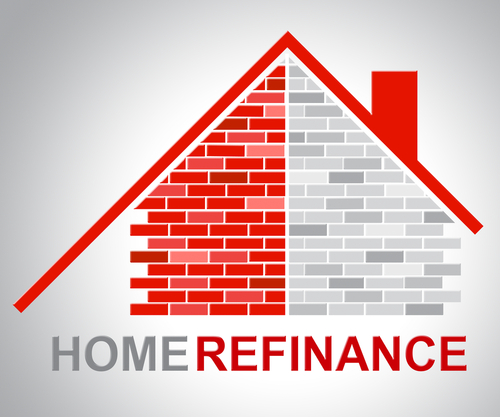
Being self-employed has its advantages and disadvantages. On one hand, you can control your schedule and income. But on the other hand, your income may fluctuate from month-to-month, which can make it harder to get financing. Since you don't receive a W-2 or paycheck from an employer, getting a mortgage is especially challenging. You’ll undergo a stricter underwriting process, and your lender may request more documentation to assess the stability of your income. But despite tougher guidelines, thousands of self-employed people have qualified for home loans. The key is understanding how lenders verify income for self-employed borrowers. 1. Lenders rely primarily on tax returns If you are self-employed, it's important that you file a tax return every year. When applying for a mortgage – or any type of loan – the lender will need to see 12 to 24 months of tax returns. Two year’s worth is typical, and these returns must show income that remains the same, or increases for two consecutive years. It's important that you provide the lender with all schedules. Be mindful that write-offs can reduce… Read more

A home equity line of credit, also called a HELOC, is a type a revolving account that uses your home’s equity as collateral. A HELOC gives you access to cash when you need it, and you can use funds for a variety of purposes. Some people use a home equity line of credit to pay off debt, make home improvements or cover the cost of their kid’s college education. Typically, you can borrow up to 80% of your equity. But while a home equity line of credit is an option for mortgage borrowers, you shouldn’t get a HELOC from any bank. Here are a few tips to help you choose the right lender for your HELOC. What is the draw period? A home equity line of credit isn't a traditional loan, so you don't receive a lump sum or have fixed monthly payments. Instead, you can draw money from your line of credit on an as-needed basis. HELOCs have a draw period and a repayment period. The time frame varies by lender, but you’re typically allowed to draw from the… Read more

Your mortgage is one of your biggest investments, and likely your largest monthly expense. Naturally, you want to protect your investment in the event of your untimely death. For this reason, you might consider purchasing mortgage life insurance. This is a unique type of life insurance. If you die before paying off the mortgage, the insurance policy pays off your balance. If you're the head of the household, have dependents, or if others rely on your income, this policy ensures that your loved ones have a place to call home after you're gone. But although mortgage life insurance has its benefits, there are a few things to consider before purchasing a policy 1. Mortgage life insurance is expensive The cost of mortgage life insurance varies depending on several factors, such as your age and the amount of your mortgage. Therefore, a smoker might pay more for a policy than a non-smoker. But even if you're young and healthy, mortgage life insurance is expensive. You’ll have to speak with an insurance agent for a quote. But to give an idea of… Read more

If you want to reduce your mortgage rate and monthly payment, or if you need cash for home improvements, refinancing your mortgage may seem like the solution. But although refinancing can achieve some of your goals, they are reasons to think twice before refinancing your house. Refinancing is the process of getting a new home loan to replace an existing loan. A new mortgage with new terms can be financially rewarding, but refinancing isn't for everyone. Here is why you should think twice before refinancing. Your credit needs improving Many people refinance with hopes of getting a lower interest rate and reducing their monthly payments. This improves cash flow, and borrowers can use extra money to pay off other debts or build their emergency savings accounts. It's important to realize, however, that a low interest rate isn’t a right—it’s a privilege. And unfortunately, refinancing to a lower interest rate requires a good credit score. Before you apply for a new mortgage, check your credit report and credit score to see where you stand. Depending on the lender, you'll need a… Read more

Before starting the process of getting a mortgage, take a closer look at your overall finances to determine whether now’s the right time. There are various factors to consider when getting a mortgage. If you're applying for your first mortgage ever, you might be unfamiliar with home loan requirements. But even if you have limited knowledge, there are five numbers to help assess whether you’re eligible for a mortgage. Credit score Credit scores range from 300 to 850. The good thing about credit is that you don't need a perfect score to qualify for a home loan. But while your credit doesn't have to be picture-perfect, it has to fall within an acceptable range. You can order your credit score from the credit bureaus along with a copy of your credit report. The better your credit score, the better your odds of getting a mortgage. You only need a minimum score of 620 to qualify for a conventional home loan, and a minimum score between 500 and 580 to qualify for an FHA home loan. However, you’ll need a credit… Read more







